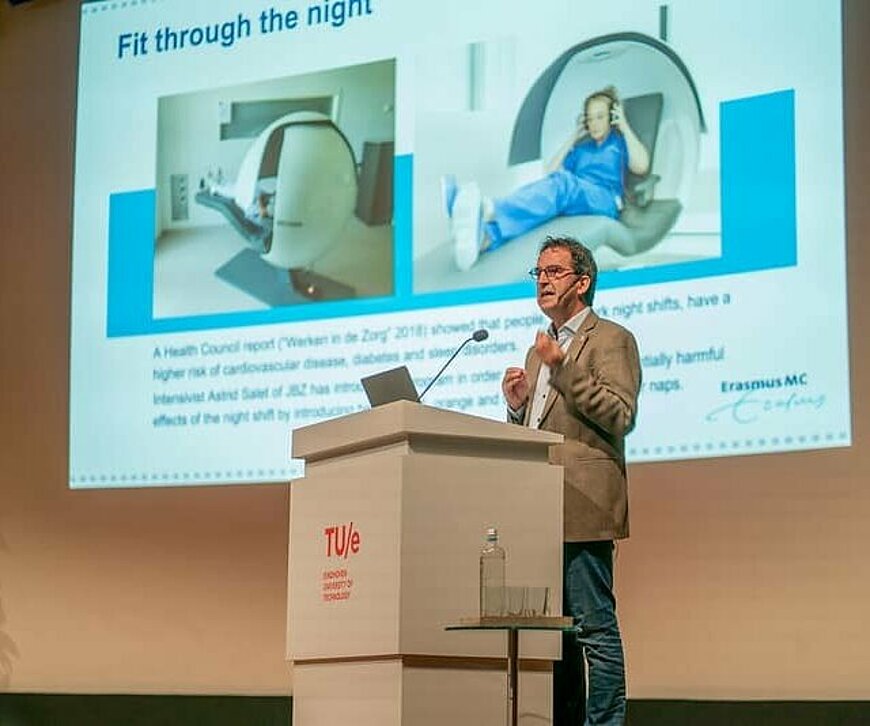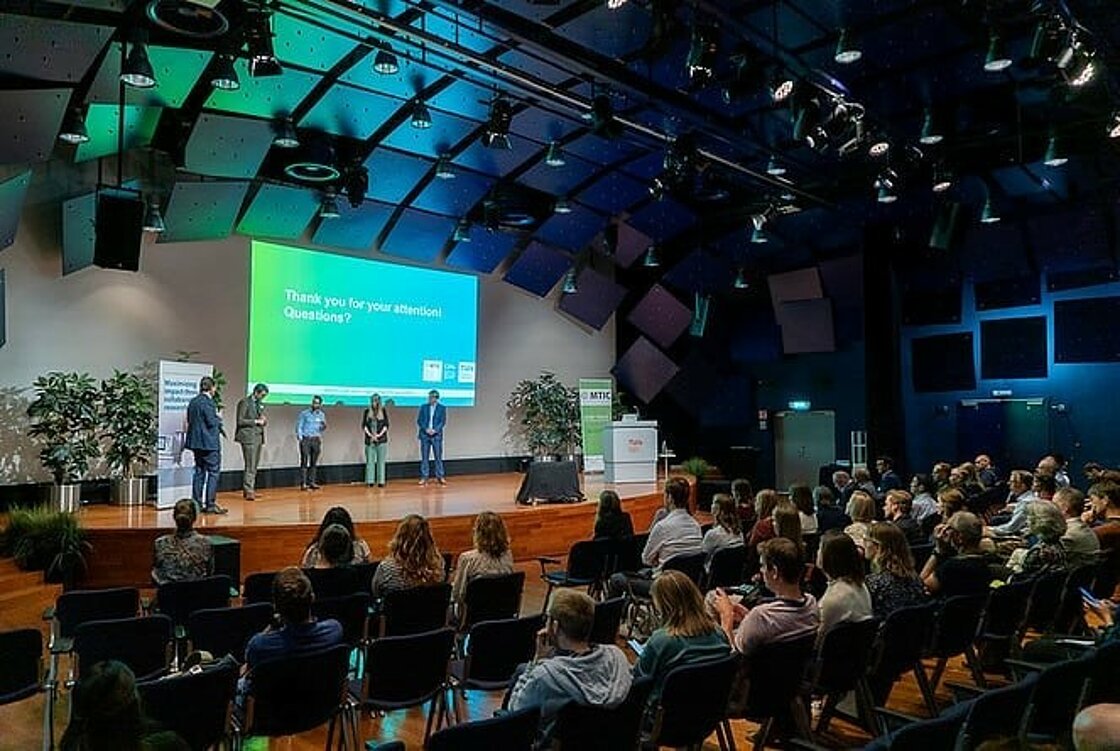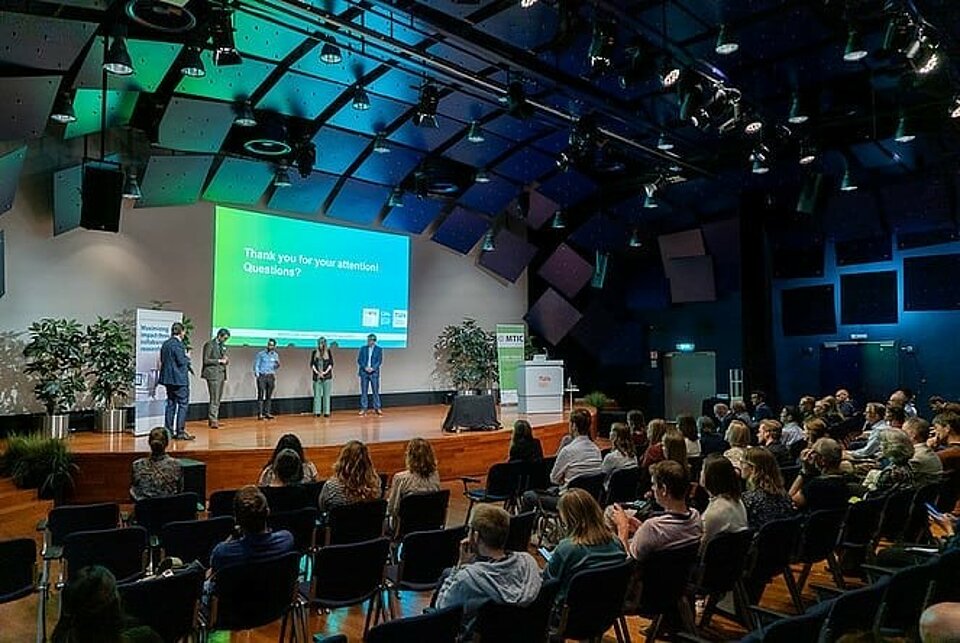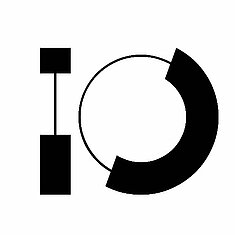Healthcare is under pressure, but technology can help solve its challenges

Smart cameras to detect patient vital signs or AI algorithms to help doctors taking decisions. Amid mounting pressure, healthcare has an ally in technology.
Aging population, labor shortage, and, in some cases, budget cuts are all challenges healthcare systems in the world find themselves confronted with. Particularly, the lack of personnel is the most evident one.“Forecasts state that there will be a need for 135,000 healthcare workers, but by implementing innovations, we could reduce this quota,” said Diedrik Gommers, a Professor of Intensive Care Medicine at Erasmus Medical Center of Rotterdam, the Netherlands (EMC).
Highlights
- Healthcare systems are faced with several challenges, which can be addressed with technology.
- AI, big data, and new wearables can all improve care quality and relieve professionals’ workload.
- Moral and ethical boundaries about the usage of technology must be defined.
An integrated approach for future-proof healthcare was the topic of the Eindhoven University of Technology (TU/e). Medtech Day 2023. The event was organized by the Center for Care & Cure Technology (C3Te) and Eindhoven MedTech Innovation Center (e/MTIC), operating within the university.
The conference touched upon several aspects involved in designing the healthcare systems of tomorrow, spanning from promising innovations to the actual adoption of new technologies. What technologies should be prioritized? How should these be introduced to the patients? These and many more points were raised and addressed by several experts who alternated themselves on the stage of TU/e auditorium’s Blauwe Zaal.
Learning from the past
In the recent past, the COVID-19 pandemic represented the greatest health challenge hospitals and care centers had to withstand. According to Gommers, many lessons can be learned. In recalling his experience during the early days after the pandemic outbreak – with a lack of an overview and coordination between hospitals – he underlined how it exposed all the problems the healthcare system faces daily.
Then, he pointed at one of them: the lack of personnel and the consequent decrease of healthcare quality. “One day [during the COVID-19 outbreak] at hospital, walking in one of the corridors, I noticed one of the nurses sitting on the floor, crying for one of the patient that just died. ‘I could not help her’ she told me, underlining how nurses often do not have enough time to check on everyone,” he recalled.
Technology can step in to relieve healthcare professionals from the increasing burden in many ways. Automation of processes – making the different devices talk to each other – and addressing the capacity problem as a logistics problem – taking inspiration from the command center some hospitals in the United States are implementing – are other adoptable solutions. Most importantly, empathy should never be missed. “Human closeness remains very important, and empathetic care should remain the cornerstone of healthcare. More innovations should be introduced so that nurses have the time to have a cup of tea with their patients,” he stressed.
The C3Te and the e/MTIC
The Eindhoven MedTech Innovation Center (e/MTIC) is a large-scale research collaboration between the Catharina Hospital, Máxima MC, Kempenhaeghe, TU/e, and Philips in the domains of cardiovascular medicine, perinatal medicine and sleep medicine. e/MTIC currently encompasses around 100 PhD students, supervised by a similar number of experts from various partners.
The Center for Care & Cure Technology (C3Te) is a center within the Flux Building at the TU/e campus. The purpose of C3Te is to expand synergistic partnerships between the departments of Electrical Engineering and Applied Physics, medical centers, and industry that are crucial to creating novel healthcare technologies, thereby reducing costs while improving quality of care.
.
Wearables, smart cameras, and data
What technologies can have an impact on enhancing healthcare? In Rik Vos opinion, an associate professor at the EMC, wearable ultrasound technology can make a difference. To monitor the lungs of an intensive care patient, for instance, or to have cardiac monitoring on the go, able to provide a wearable echography device. This way, patient experience can highly benefit.
The FORSEE project, instead, uses smart cameras to check on patients. Video monitoring for early signaling of adverse events is the goal of the initiative, a collaboration between the TU/e and the Catharina Hospital in Eindhoven. Iris Cramer, a TU/e doctoral candidate, presented the potential these cameras have, not only to measure vital signs but also, in combination with deep learning algorithms, to spot signs of deterioration in patients – blue lips or paler faces.


Data can also be key, and healthcare should be data-driven, according to Gommers, too. The way data is used and understood is relevant. All sensors in an intensive care unit bed, for instance, get lots of data, but “they do not say anything about the context,” explained Ashley de Bie. He is an intensivist at the Catharina Hospital, working on a platform for data integration to make them powerful.
Similarly, Tom Bakkes, a Ph.D. candidate in TU/e’s biomedical diagnostics lab, discussed the potential of machine learning algorithms in helping doctors with patients’s prognoses and diagnoses. Having a huge amount of information at disposal, it is easy to get lost. Yet, these tools can inform doctors and improve their workflow.
Accepting technology
Despite having many options on the table, and the willingness to embrace more technology, technology acceptance poses another challenge. This topic was the chosen one for the last session of the Medtech day. The subject is not uncomplicated, with problems arising from differenton different perspectives.
Bert Mik, an anesthesiologist at the EMC, delved more into the actual evaluation and acceptance of technology. By contrast, Bart Wernaart – a professor of Moral Design Strategy at Fontys University – discussed the ethics of technology, underlining the inherent struggle
between people and technology. In addition, Corrette Ploem – a legal scholar at the University of Amsterdam – reflected on the legal challenges of technology adoption. Informing patients about procedures and communicating in a transparent way – even more so when AI comes into play.
Technology can help
Limits exist and choices need to be made about what innovations to embrace first, but given the pressing problems healthcare faces, technology represents an important part of the answers to all the mentioned problems. What is more, as it has always been for centuries now, technology can improve care and the doctors’ workflow, guided by the irreplaceable human touch.
